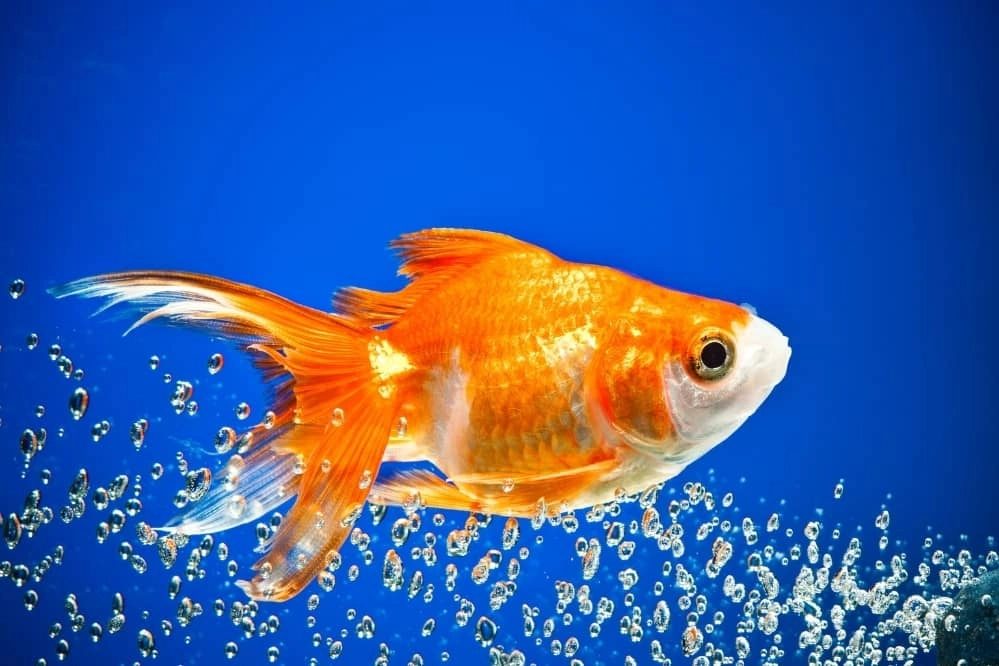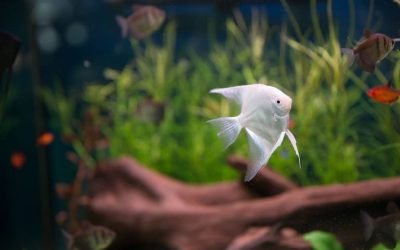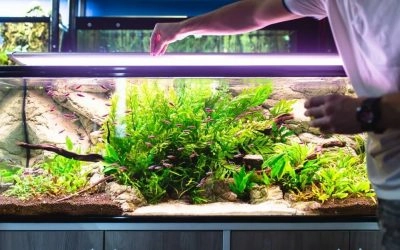How Often You Should Feed Your Goldfish?

If you own any goldfish, you want to do everything in your power to give them the best care possible. A huge part of taking care of them is how often you feed them, as overfeeding or underfeeding goldfish can create a host of problems that nobody wants to handle. However, feeding goldfish is one of the areas that most new owners struggle with the most.
Typically you should feed your goldfish two to three times a day. Not only is how often you feed them important but when you feed them is too. Allowing your goldfish to develop a regular feeding pattern helps keep them in good health because it helps regulate their digestive cycle. Feeding them whenever you think about it or just randomly throughout the day increases the odds of them getting sick or not getting enough to eat.
Factors Affecting How Often to Feed Goldfish
It’s easy to come up with a feeding strategy for your goldfish, but there are some factors that you need to be aware of that affect how often they should be fed. Here are the three most important ones.
Food Dominance
Simply put, food dominance occurs when a larger, stronger, or faster fish hogs all of the food and prevents other fish from consuming it. Typically, this is not malicious behavior. It is a natural survival impulse.
When feeding them, keep a watch on this to see if this is occurring in the tank. To guarantee that all of your fish have enough to eat, you may need to spread the food out or try different sorts. You also might need to segregate them to ensure that all of your goldfish have enough to eat. This is more successful than feeding them more frequently.
Overfeeding
Many new goldfish owners make the mistake of overfeeding their fish. It’s a little harder to keep track of how much your goldfish eats than it is with other pets. It’s unrealistic to expect them to eat every ounce of food you give them because you’re dropping it into the water rather than placing it in a bowl.
Two typical issues might develop when combined with an ineffective food monitoring method, such as not adhering to the two-minute rule. The first issue affects their overall health, while the second one creates water quality problems.
When you feed a goldfish too much food, it will gain weight. This weight gain starts to cause problems with their essential body functions, which will severely impact their general health. It makes digestion difficult and raises their risk of developing a fatty liver. It also makes them more susceptible to various diseases, including fin rot and dropsy.
When you overfeed your goldfish, some of the food will go uneaten and then drop to the bottom of the tank. You’ll never get your goldfish to eat all of the food you offer them. Overfeeding dramatically increases the amount of food leftover. The leftover food creates a huge problem with the water’s quality.
The food that has been sitting in the tank for a long period will begin to decompose. The amount of ammonia, nitrites, and nitrates in the tank will rise due to this process. When these levels rise uncontrollably, the water becomes an extremely harmful environment for your goldfish.
No Appetite
Another factor to watch out for is when your goldfish doesn’t want to eat. If you follow a regular feeding schedule, this issue is easier to notice than if you just dump a bunch of food in and walk out the door. If your goldfish suddenly quits eating or drastically decreases how much they are eating, you must figure out what is happening.
A disease or illness is one of the most evident causes. Feeling under the weather, just like any other animal, can cause your goldfish to consume less food than usual.
It’s also possible that you’ve been feeding them too much. This may cause your goldfish to refuse further food simply because they aren’t hungry or develop stomach problems. Make sure you are following the two-minute rule when feeding them to prevent this.
The final possibility is that they simply don’t like the food you are using. If you’ve been feeding your goldfish the same diet for years, this is unlikely, but it’s a possibility if you’ve changed the type of food you are buying. Even just a brand change can cause this problem.
If this is the issue, you must give them a few days or so to adjust to the new stuff you are offering. Sometimes all they need is a little time to adjust to their new diet.
How Much Food Should I Give to My Goldfish?
Knowing how often you should feed your goldfish is only the first step to taking care of them. Something just as important to their care is how much food you are giving them. One of the most crucial aspects of appropriate maintenance is doing this properly.
Let’s assume you feed your goldfish a large amount of food each time you feed them. In this case, feeding them twice a day may be plenty, while feeding them three times a day is going to be too much.
Breaking up the quantity of food you typically give them over two meals into three is a better option. Three times a day is not only better for digestion purposes, but it also provides your goldfish with more enrichment opportunities. A little fact that many fish owners aren’t aware of is how much fish love their feeding time.
When determining how much food to give them each time you feed them, a good rule to follow is the two-minute rule. What this means is don’t give them more food than they can eat within two minutes. If there is any food remaining after two minutes, skim it out of the tank and dispose of it.
Something to keep in mind with the two-minute rule is that it works better with flake food than other types of food. Flakes are easy for them to find, so they will consume them rather quickly. Pellets or other foods take them a bit longer to find, especially those that sink toward the bottom.
Is There an Ideal Time to Feed Goldfish?
When deciding how often to feed a goldfish, it’s natural to ask if certain times of day are better than others. Luckily, this isn’t a major thing to be concerned about with goldfish.
With goldfish, as long as you consistently feed them two to three times a day, they will do just fine. It’s one of the great things about having goldfish compared to other types of fish. Some fish require feedings during certain hours of the day, but goldfish are pretty low-maintenance and adapt well to their living environment.
The best thing you can do is to maintain a regular feeding schedule. This will have a significant impact on their longevity and long-term health.
A regular schedule means if you feed them every morning right before you leave the house and then again as soon as you return home, you need to stick to that schedule. Sticking to the schedule means every day, including the days you don’t leave the house. If you need to change the schedule, it’s best to do it slowly over an extended period to help their bodies adjust.




0 Comments